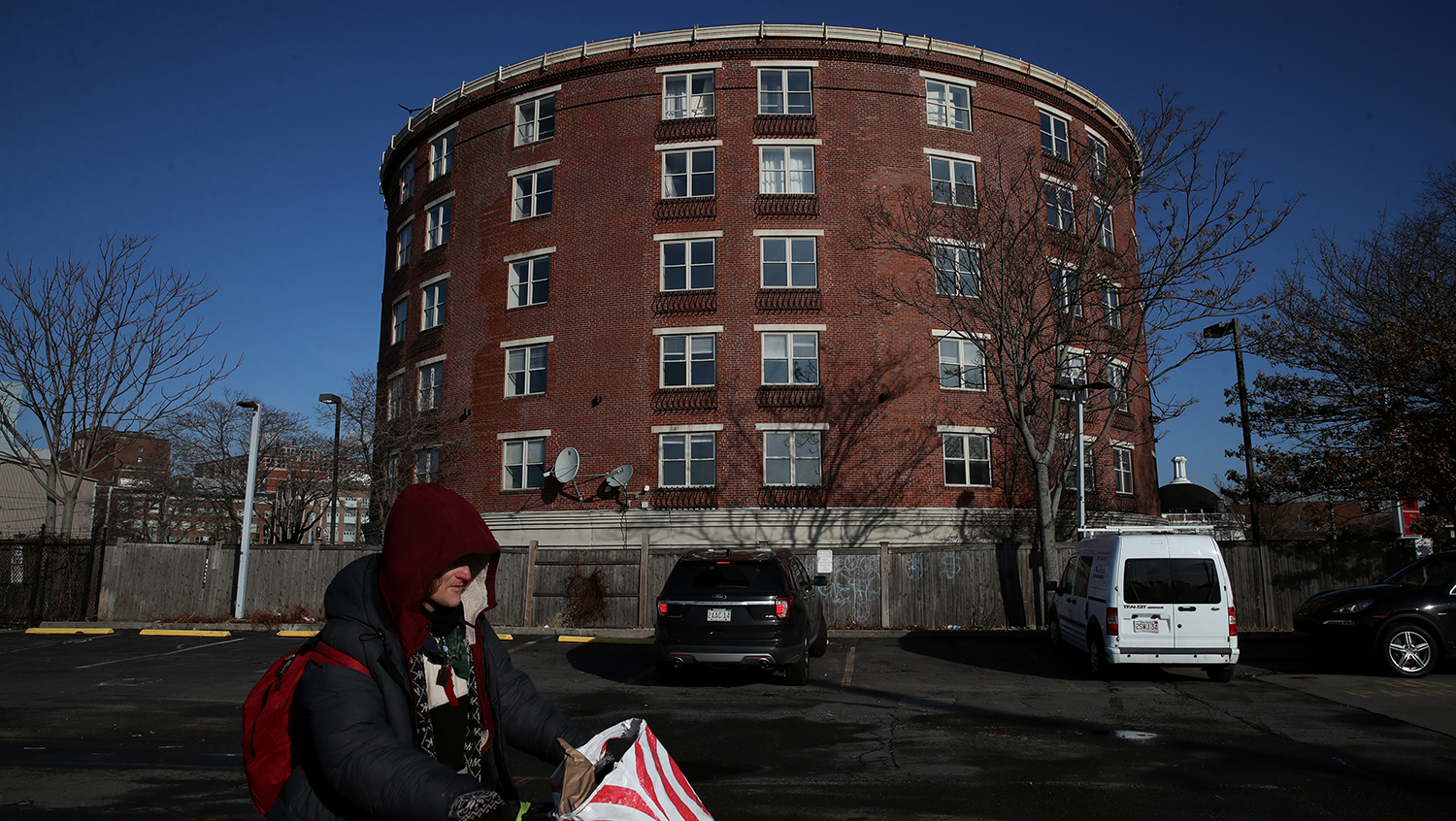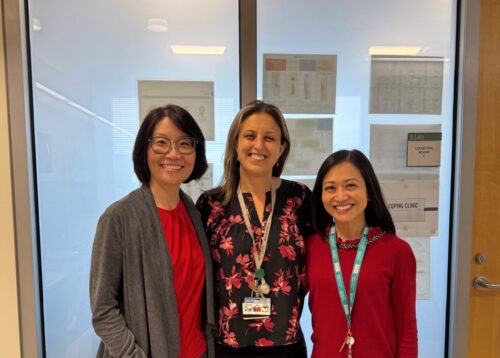BMC Launches New Housing Initiative at 'Mass and Cass' with City of Boston
January 20, 2022

Boston Globe, Getty Images
The low-threshold, transitional housing model aims to help people experiencing homelessness alongside addiction, mental health, and other related concerns.
As of January 12, Mayor Michelle Wu and the City of Boston proclaimed that all tents and encampments in Newmarket Square—which has come to be known as “Mass and Cass,” identifying the intersection of Massachusetts Avenue and Melnea Cass Boulevard—must come down. Estimates from Boston Medical Center and the Boston Public Health Commission show that at its peak this fall, approximately 323 individuals were sleeping on the streets in this area. And though that number declined (to 248 in late November), BMC experts were quick to note that this was more likely due to moving encampments rather than finding alternative housing options. Now, however—unlike prior attempts to displace the encampments of people experiencing homelessness—finding suitable housing and addiction treatment options is a key part of the removal strategy.
The colliding epidemics and pandemics of homelessness, opioid use disorder (OUD), and COVID-19—alongside upstream health issues and current and historic flaws in housing models—have led to this public health crisis at Mass and Cass.
Part of addressing this complex public health crisis is identifying the needs of the people who are experiencing homelessness. According to Miriam Komaromy, MD, the medical director for the Grayken Center for Addiction, the people sleeping at Mass and Cass are typically people with very high rates of substance use disorder and co-occurring mental health conditions, including psychotic disorders and “tremendous rates” of trauma.
Komaromy is helping to spearhead BMC’s involvement in the City of Boston’s action-oriented approach to addressing the complex crisis at Mass and Cass.
“BMC has a really strong interest in supporting the efforts at Mass and Cass, probably most importantly, because many of these folks who have been struggling on the street are our patients,” Komaromy says. “This is our neighborhood. And we feel a major investment in the neighborhood and the area and the most marginalized populations in Boston. And arguably, this is ground zero for folks who are really struggling.”
Obstacles to stable housing for people with addiction
There are numerous issues and roadblocks with existing treatment and housing models, according to Komaromy and Rob Koenig, BMC’s executive director of Strategic Programs: housing in Boston can be restrictively expensive, the waitlist for Section 8 housing in the area is years long, and traditional shelter rules make it difficult for people with SUD to both enter and stay. Often, shelters restrict or ban the use of substances as a requirement for a stay, and people cannot come or go overnight—a combination that makes managing overnight withdrawal very difficult. These rules contribute to an environment in which people remain unsheltered and are unable to stabilize with regard to their substance use when they have such a difficult living environment.
“For example, people addicted to fentanyl may have to inject 10 or 12 times per day, including overnight, to avoid going into an excruciatingly painful withdrawal,” Koenig explains. “Yet, you typically can’t leave overnight from a shelter. So, battling addiction while being in the shelter system is a major challenge for some guests, despite efforts by shelter programs.”
According to Komaromy and Koenig’s presentation given to members of the community and internally at BMC, the hospital is implementing one component of the city’s plan to address these problems with a low-threshold, clinically based approach to housing and addiction treatment that aims to overcome some of these obstacles. The approach, Koenig notes, is for not only the people currently being removed from the Mass and Cass encampments but, ideally, people experiencing homelessness across the city.
BMC, Roundhouse hotel, and addressing the Mass and Cass crisis
The plan—which has already begun—is to open two clinical programs as well as crisis housing, creating a three-pronged approach:
- Opening a transitional care center (TCC), also known as a bridge clinic
- Opening a stabilization care center (SCC)
- Opening low-threshold crisis housing beds
These initiatives function in conjunction or individually, depending on a person’s needs.
The TCC operates as an urgent care center to treat SUD—including starting medications for addiction—managing withdrawal, and treating co-occurring issues, such as acute mental health symptoms and increased risk of HIV and hepatitis C.
The SCC will function as a sort of triage center for acute needs, so that clinicians can determine the best path for that person experiencing homelessness. It is intended to be short-stay, less than 24 hours, where people can be stabilized and observed if they come in with symptoms. For example, Komaromy explains, if a person comes in agitated, experts can determine if it’s a result of withdrawal, mental health, or a stimulant, such as methamphetamine. That determination will set a course for care, whether in a mental health facility, hospital, or addiction treatment program, for example.
Both the transitional care and stabilization care centers will be co-located with the low-threshold housing program at the Roundhouse hotel at 891 Massachusetts Ave., which has already been accepting people into its approximately 60 beds. The Roundhouse hotel will operate as housing, but unlike traditional shelter options, it will provide stabilization services to support addiction recovery. Ultimately, people who find shelter at the Roundhouse hotel will be transitioned into permanent housing.
“It’s a tremendously exciting opportunity for us to combine supportive housing with providing medical services that can help stabilize the folks who are in the housing. We hope to treat the conditions that have kept them down and prevented them from moving on to next phases of housing and care,” says Komaromy.


